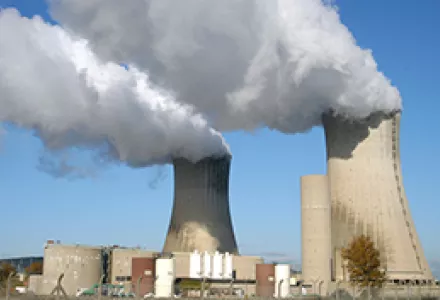Nuclear Energy and Proliferation: Examining the Links
Does the spread of nuclear energy to new countries increase the likelihood of nuclear weapons proliferation?
Does the spread of nuclear energy to new countries increase the likelihood of nuclear weapons proliferation?

Does the spread of nuclear energy to new countries increase the likelihood of nuclear weapons proliferation? This talk evaluates the historical evidence that bears on this question and assesses the effectiveness of international efforts to break the link between energy and weapons.
Nicholas Miller is an Assistant Professor of Political Science at Brown University. His research focuses on nuclear proliferation and U.S. nonproliferation policy. His work has been published in the American Political Science Review, International Organization, International Security, the Journal of Conflict Resolution, and Security Studies. He received his Ph.D. in Political Science from MIT and a B.A. in Government from Wesleyan University.